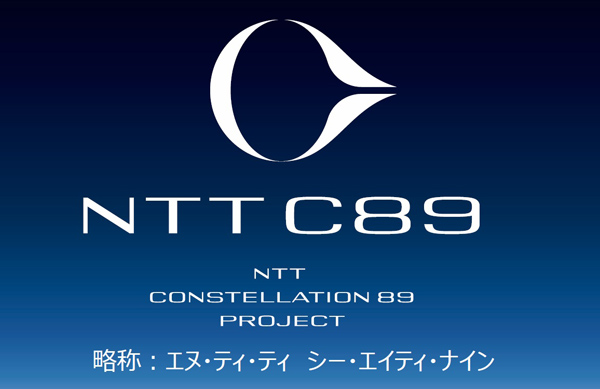NTT formulates space business strategy

On June 3, NTT announced the space business strategy for the NTT Group.
As part of the strategy, they have launched a unified brand, “NTT C89” (NTT Constellation 89 Project), to accelerate the space business.
President Shimada Akira explained, “The key words are new constellations for the future. It embodies our desire to create the 89th new constellation.”
Specific initiatives include the creation of an in-house space integrated computing network, which is being conceived in collaboration with SKY Perfect JSAT. While promoting technological development, they will accelerate the development of services in collaboration with partners.
They are also focusing on GEO satellites. NTTdocomo already provides satellite telephone and data communication services with Wide Star, but they will further strengthen their services.
They are also preparing an “optical data relay service” that will relay data captured by Space Compass using low-orbit observation LEO satellites via optical communication.
Furthermore, in order to utilize GEO satellites as data centers, the company will work with JAXA to develop technology to implement AI on GEO satellites and process data.
In addition, the company will also conduct research into technologies for generating and transmitting solar power in space, and electromagnetic barrier technology to protect satellites from cosmic rays.
“We would like to use these technologies to make satellites last longer and more robust,” said Shimada.
The company will also strategically collaborate with Amazon’s LEO satellite broadband network “Project Kuiper.” The company plans to launch two satellites to Japan within this year and begin demonstration experiments.
The company will also focus on the stratospheric communications platform “HAPS,” with plans to start service in Japan in 2026 and then expand globally.
“We have high hopes for HAPS, and would like to conduct experiments within this fiscal year. There are challenges, such as the difficulty of absorbing energy from sunlight at high latitudes, but we will move forward while resolving these challenges,” Shimada commented.
NTT Data will play a central role in business development in the area of observation satellites and data utilization. The company is considering a business to develop its own observation satellite constellations, centering on AW3D, a service that converts observation data already provided into digital 3D. The company is also considering turning a digital twin platform into a service that adds time axis information to 3D maps, enabling digital simulations. NTT Group’s space-related business currently generates sales of several billion yen, but the company aims to expand this to the 100 billion yen level in 10 years’ time.
